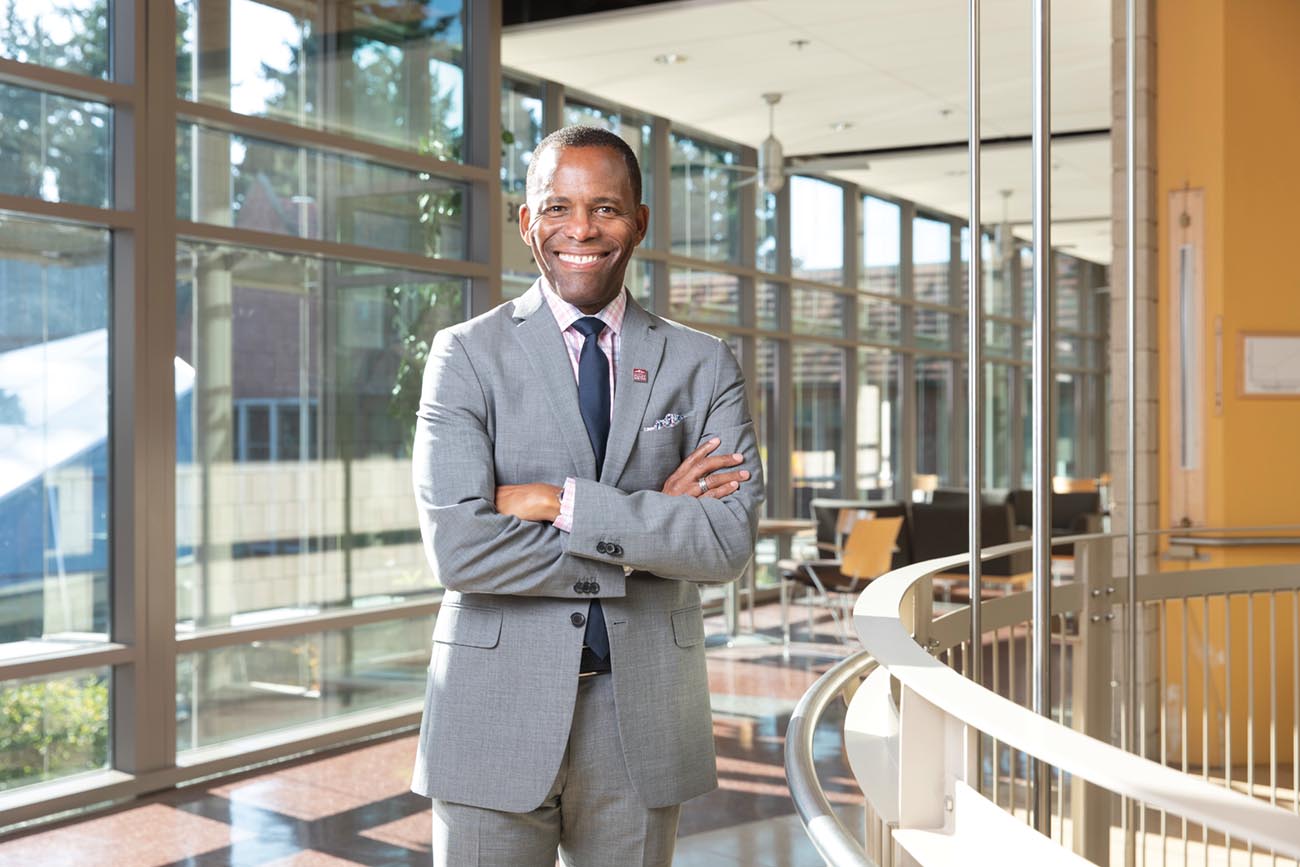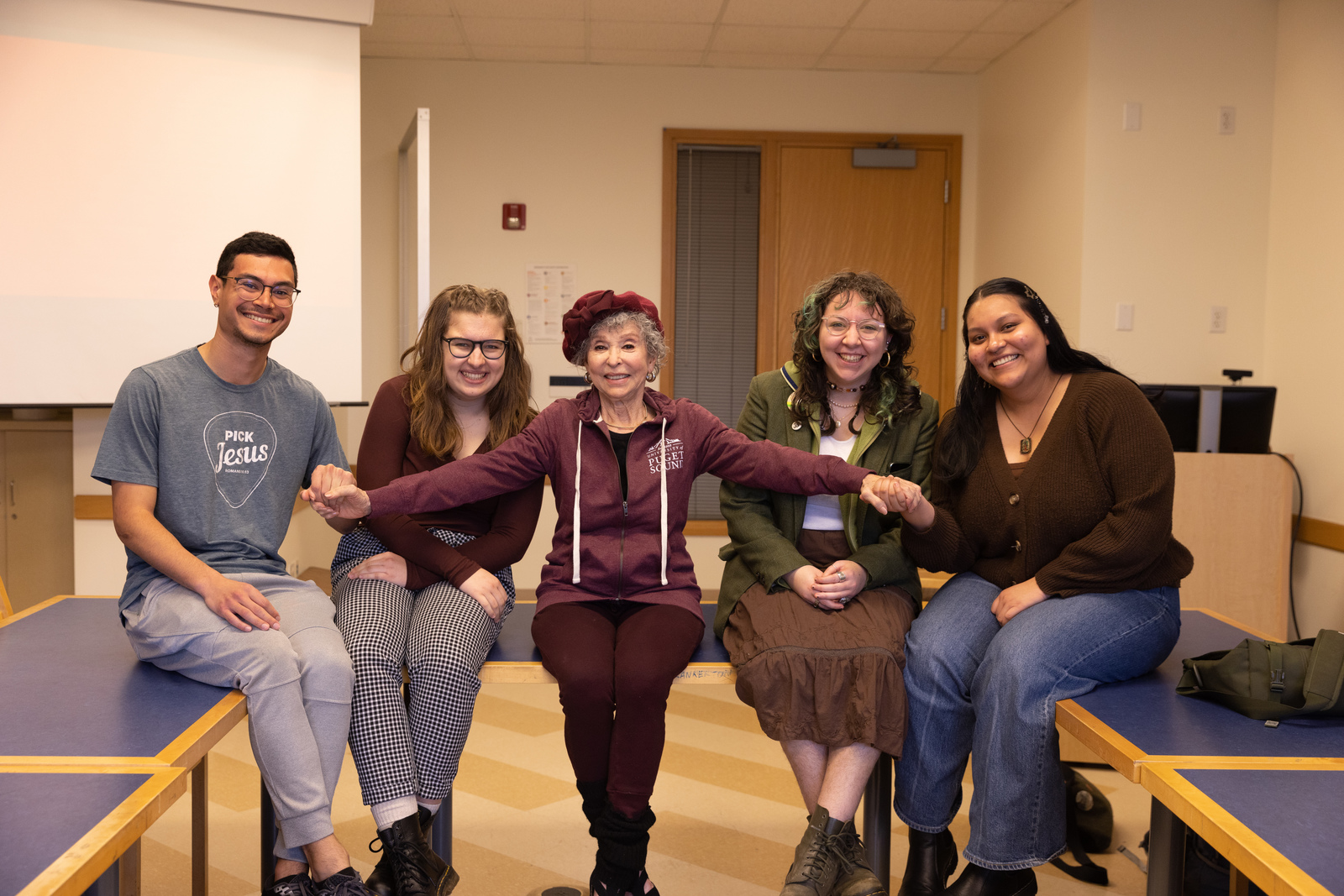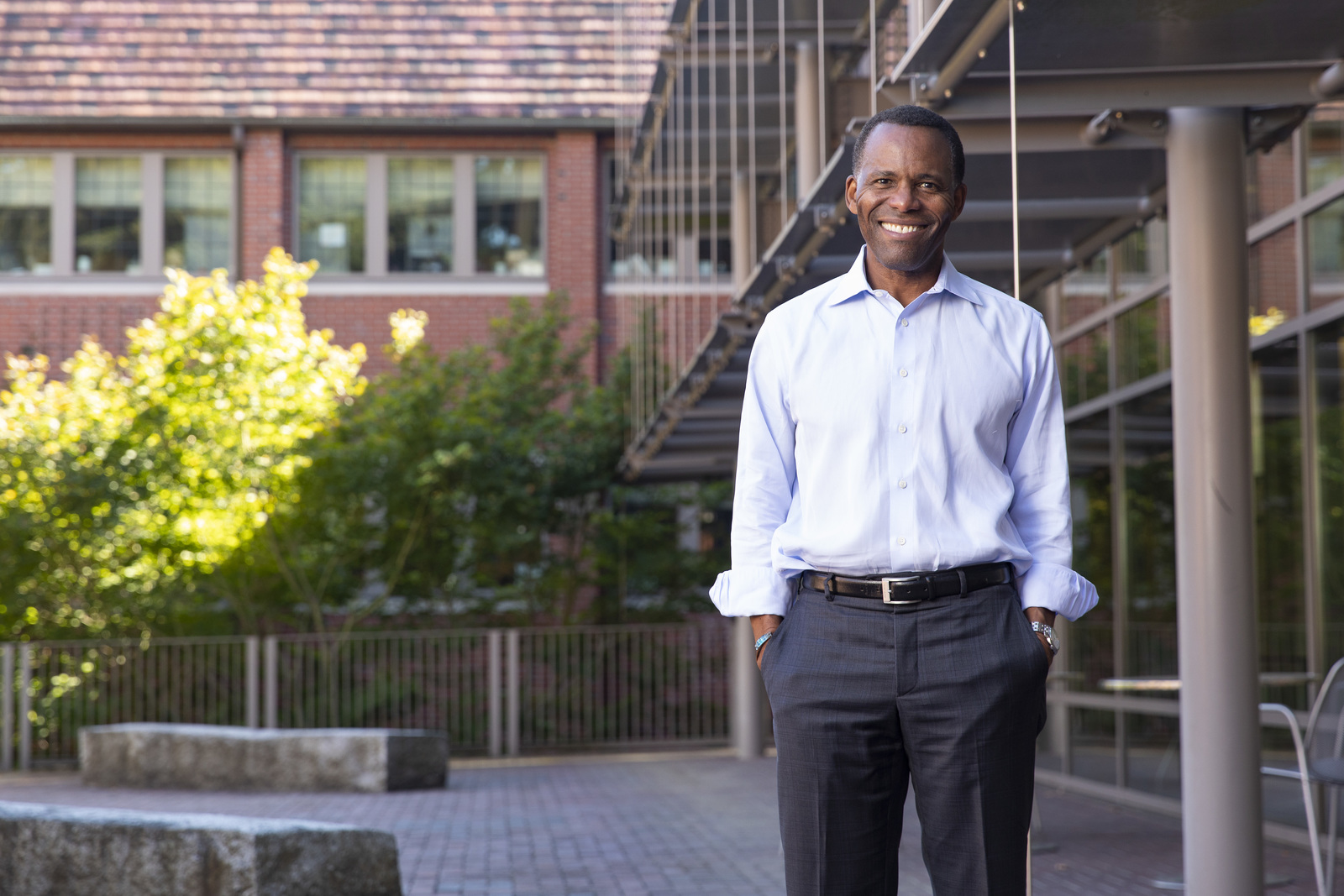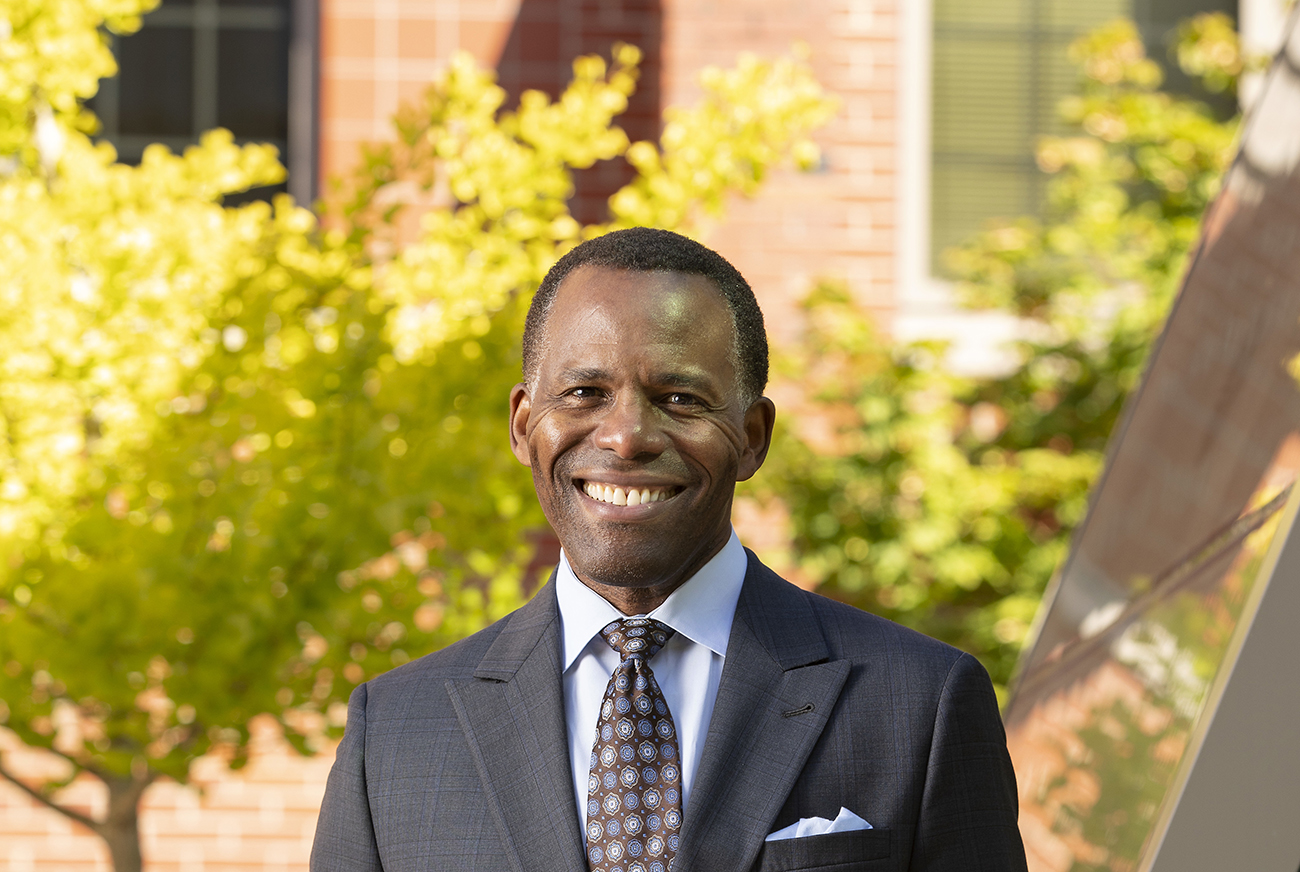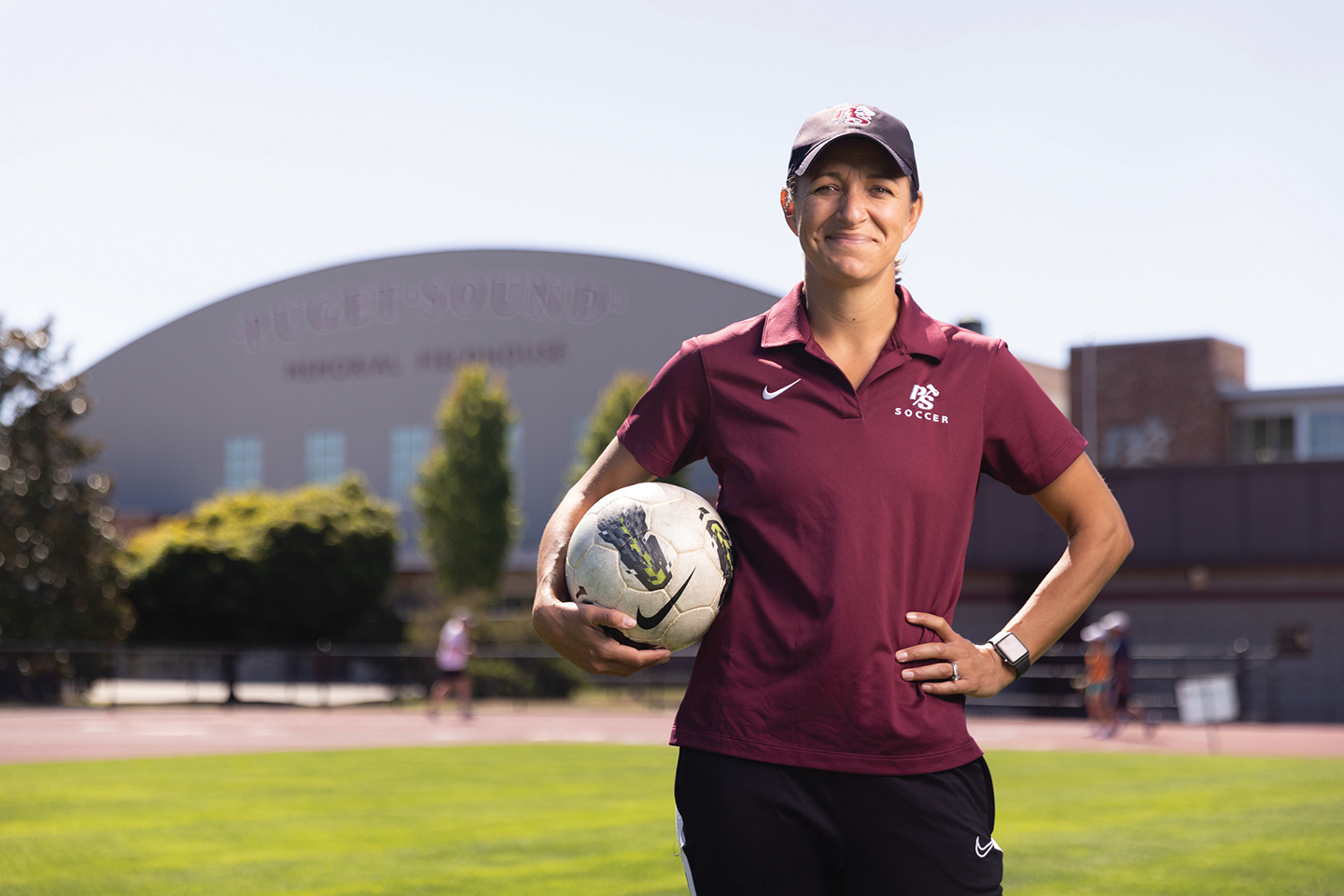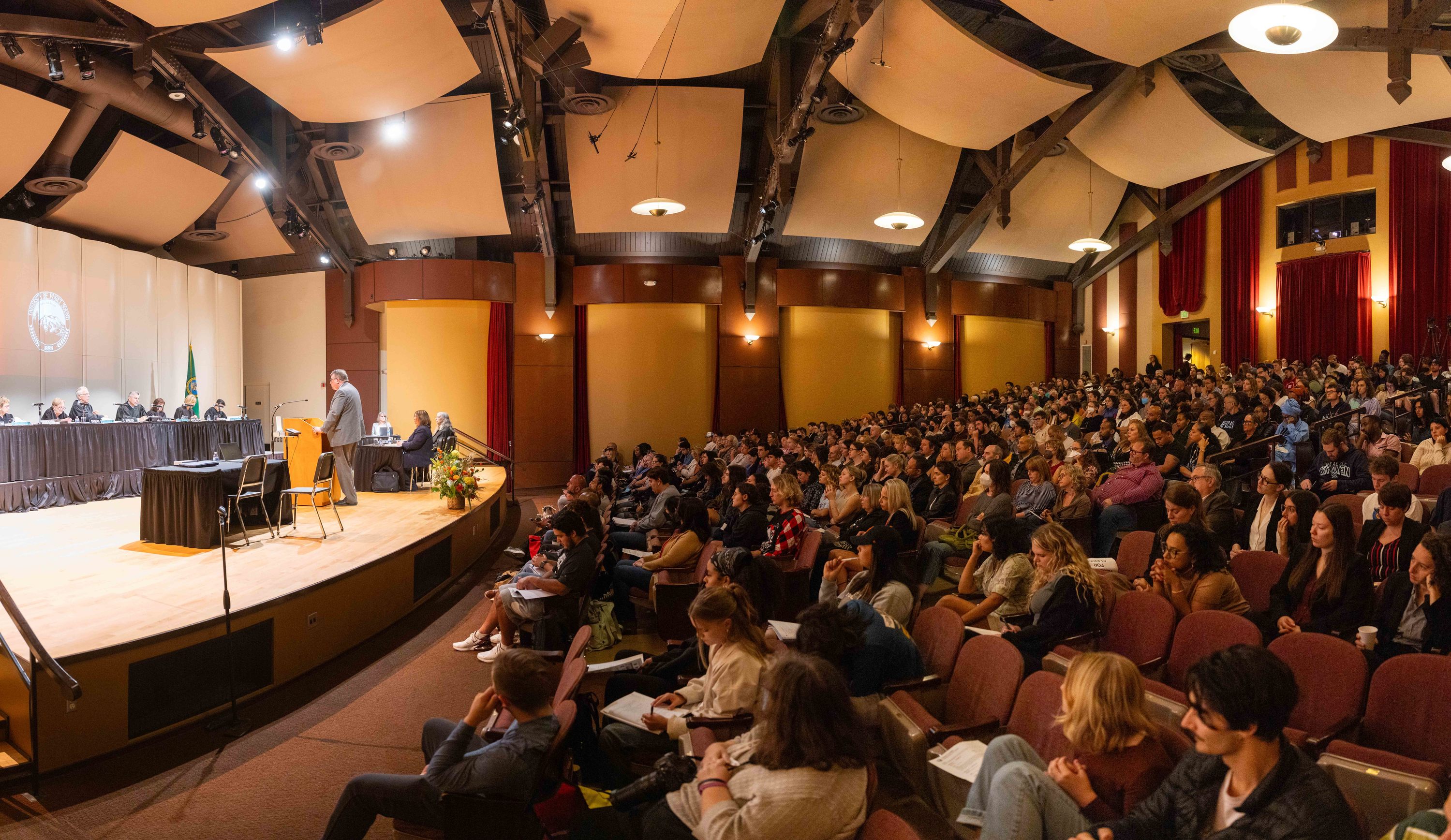From the President
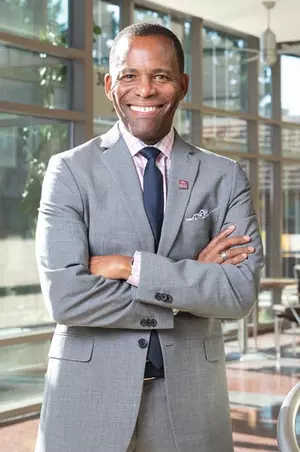
You seemed pretty jazzed to see students and parents back on campus at the end of August.
Absolutely. It’s just been so uplifting. I don’t know what we would have done this past year without Zoom, WebEx, and GoToMeeting, but nothing beats being in person with your students, even if we have to be masked. It’s just been fantastic—their energy, their enthusiasm, their sense of what tomorrow may bring is palpable.
Was there a theme in what students and parents were saying to you?
Yes, they’re absolutely happy to be here and ready to resume a more normal collegiate experience. We also had a number of students who deferred from fall of ’20 to join us now, and a lot of those students and their parents said they followed us very closely over this past year. They were impressed with the way we managed COVID-19 and prioritized the health and safety of our community while continuing to move forward. They became even more convinced that this was the place for them.
In your remarks to the faculty and staff the first week, I detected a theme: that the sciences, especially the health sciences, will be a priority for the school in the coming years.
Yes, that’s right. We are a residential liberal arts college in the fullest sense and have a strong focus on interdisciplinary coursework and understanding, but something we do particularly well at Puget Sound is science education and health sciences education. In this very competitive higher education marketplace, we have to speak to our strengths—so we’re going to lead with that in a few ways. We have fantastic faculty and facilities, and our student outcomes in the sciences are terrific. For example, the acceptance rates of our students into medical schools are well above national averages, and we were named a leading college for women who go on to pursue doctoral degrees in STEM fields. We have outstanding programs in occupational therapy and physical therapy, and we’ve just launched a new master’s in public health. We think the world needs more liberal arts-educated people in these areas, and we feel called to meet this need. We’ll look to expand our existing programs and bring new ones to market.
Are you able to say what those new programs might be?
I don’t want to get ahead of the faculty or the provost on that, but we’re looking into a number of areas. I can tell you that we are moving forward to develop a major in data science that will eventually include a pathway for a graduate program. But in terms of the health sciences, we’re going to be very thoughtful and bring forward new programs that are consistent with our mission, build on our strengths, and will help to meet the regional and national demand for health care professionals.
I know that undergraduate enrollments aren’t where you’d like them to be just yet, but the graduate programs are doing quite well.
Yes. We’re very fortunate. We’re developing a comprehensive strategic enrollment plan that will stabilize and grow undergraduate enrollment. We’ll be fine once we get through this period of COVID and its lingering effects. So that will get solved. But we are very fortunate right now to be doing particularly well with our graduate enrollment. Again, we have really well-regarded and in-demand programs in OT and PT and in the School of Education, and the new master’s in public health program complements those nicely. We’ll nurture those and grow those incrementally in the years to come.
Can you elaborate on the concept of a liberal arts-focused graduate education?
I think that’s something that makes us distinctive, being a liberal arts college that has select graduate programs. The way we go about graduate education is framed within our liberal arts ethos. We look to engage and develop the whole person through an integrated course of study and experiences that provide graduate students with not just knowledge, expertise, and skill but also the capacity for self-reflection and a sense of justice and commitment to ethical action.
You’re also talking about creating a center of scholarship around Pacific Rim studies, right?
We are. We have a signature Pac Rim study abroad program that is truly distinctive to the University of Puget Sound, and we feel that we have some opportunities to expand programming and experiences for students in these regions. We’re talking about the Pacific Rim broadly speaking—not just Asia but Latin America, as well. We’re well positioned to be at the center of study, research, global exchange, and other activities that pertain to these regions. And these are regions that are emerging as the cultural, economic, and political engine of the future.
